In the rich tapestry of the Quran, there exist four jewels 4 Qul Surahs that, despite their brevity, shine with resplendent brilliance in the hearts and minds of believers. These are the “4 Qul Surahs”, namely Surah Kafirun (Chapter 109), Surah Ikhlas (Chapter 112), Surah Falaq (Chapter 113), and Surah Nas (Chapter 114).
While they may be short in length, their spiritual significance is immeasurable. These Surahs, though distinct in content and focus, share a common thread: they serve as shields, as guardians of faith, and as beacons of light against the darkness of doubt and fear. In their verses, we find solace, strength, and unwavering devotion.
Agar ap 4 Qul aur unka tarjuma Roman English me dhund rahe hai, to yaha click kar ke padh sakte hai.
Surah Kafirun (The Disbelievers): It teaches us the essence of unwavering faith and the rejection of falsehood, reminding us that true belief in Allah stands unshaken in the face of disbelief.
Surah Ikhlas (The Sincerity): In its concise verses, it encapsulates the oneness of Allah, inviting us to contemplate the Divine essence and reaffirm our faith in His unity.
Surah Falaq (The Daybreak): It serves as a powerful talisman against harm, seeking refuge in Allah from the malevolent forces that may lurk in the shadows.
Surah Nas (The Mankind): This Surah is a supplication for protection, beseeching Allah to shield us from the evil that resides within the hearts of mankind and jinn.
Join us on this journey through the Four Qul Surahs as we explore their profound meanings, their significance in daily life, and the spiritual armor they provide. These Surahs are not just words on pages; they are a source of divine protection, a means of drawing closer to Allah, and a refuge for our souls.
As we delve into the depths of these Surahs, may they illuminate our path, strengthen our faith, and serve as a constant reminder of the boundless mercy and protection of Allah, the Most High.
Table of Contents

4 Qul in English Transliteration
Surah Kafirun
Qul ya ayyuhal kafirun
La a’abudu ma ta’abudun
Wala antum a’abiduna Ma a’abud
Wala ana ma a’abadtum
Wala antum a’abiduna ma a’abud
Lakum deenukum waliya deen.
Surah Ikhlas
Qul huw Allahu Ahad
Allahus Samad
Lam yalid walam yulad
Walam yaqun lahu
Kufuwan Ahad.
Surah Falaq
Qul A’auzu birabbbil falaq
Min sharri ma khalaq
Wa min sharri ghasiqin idha waqab
Wa min sharrin Naffathati fil a’uqad
Wa min sharri hasidin idha hasad.
Surah Nas
Qul a’uzu biRabbin Nas
Malikin Nas
Ilaahin Nas
Min sharril waswaasil khannas
Alladhi yuwaswisu fi sudurin Nas
Minal jinnati wan Nas.
4 Qul in English Translation

Surah Kafirun
Say, “O you disbelievers!
I do not worship what you worship,
nor do you worship what I worship.
I will never worship what you worship,
nor will you ever worship what I worship.
You have your way, and I have my Way.”
Surah Ikhlas
Say, “He is Allah—One,
Allah—the Sustainer
He has never had offspring, nor was He born.
And there is none comparable to Him.”
Surah Falaq
Say, “I seek refuge in the Lord of the daybreak,
from the evil of whatever He has created,
and from the evil of the night when it grows dark,
and from the evil of those blowing onto knots,
and from the evil of an envier when they envy.”
Surah Nas
Say, “I seek refuge in the Lord of humankind,
the Master of humankind,
the God of humankind,
from the evil of the lurking whisperer,
who whispers into the hearts of humankind,
from among jinn and humankind.”
4 Qul in Arabic

سُوْرَۃُ الْکٰفِرُوْنَ
قُلْ يَـٰٓأَيُّهَا ٱلْكَـٰفِرُونَ
لَآ أَعْبُدُ مَا تَعْبُدُونَ
وَلَآ أَنتُمْ عَـٰبِدُونَ مَآ أَعْبُدُ
وَلَآ أَنَا۠ عَابِدٌۭ مَّا عَبَدتُّمْ
وَلَآ أَنتُمْ عَـٰبِدُونَ مَآ أَعْبُدُ
لَكُمْ دِينُكُمْ وَلِىَ دِينِ
سُوْرَۃُ الْاِخْلاَصِ
قُلْ هُوَ ٱللَّهُ أَحَدٌ
ٱللَّهُ ٱلصَّمَدُ
لَمْ يَلِدْ وَلَمْ يُولَدْ
وَلَمْ يَكُن لَّهُۥ كُفُوًا أَحَدٌۢ
سُوْرَۃُ الْفَلَقِ
قُلْ أَعُوذُ بِرَبِّ ٱلْفَلَقِ
مِن شَرِّ مَا خَلَقَ
وَمِن شَرِّ غَاسِقٍ إِذَا وَقَبَ
وَمِن شَرِّ ٱلنَّفَّـٰثَـٰتِ فِى ٱلْعُقَدِ
وَمِن شَرِّ حَاسِدٍ إِذَا حَسَدَ
سُوْرَۃُ النَّاسِ
قُلْ أَعُوذُ بِرَبِّ ٱلنَّاسِ
مَلِكِ ٱلنَّاسِ إِلَـٰهِ ٱلنَّاسِ
مِن شَرِّ ٱلْوَسْوَاسِ ٱلْخَنَّاسِ
ٱلَّذِى يُوَسْوِسُ فِى صُدُورِ
ٱلنَّاسِ
مِنَ ٱلْجِنَّةِ وَٱلنَّاسِ
Hadith regarding 4 Qul Surah
When we talk about the benefits of reciting 4 Qul, there are two words that need to be understood. Al Mu’awwidhat and Al Mu’awwidhatayn.
What is Al Mu’awwidhatayn?
The last two Surah of Al Quran, Surah Falaq and Surah Nas, are called Al Mu’awwidhatayn, the two Surah of protection. You can find more details about them in the coming ahadith from Sahih Al bukhari and Sahih Al Muslim, so keep reading.
What is Al Mu’awwidhat?
The last three surah of Al Quran, Surah Ikhlas, Surah Falaq and Surah Nas are called Al Mu’awwidhat, the three surah of protection.
Benefits of reciting Al Mu’awwidhatayn
Uqba b. ‘Amir reported:
The Messenger of Allah (ﷺ) said to me: There have been sent down to me verses the like of which had never been seen before. They are the Mu’awwadhatayn (Mu’awwidhatayn).
Sahih Muslim Hadith Number 1892
‘Uqba b. ‘Amir reported Allah’s Messenger (ﷺ) as saying:
What wonderful verses have been sent down today. the like of which has never been seen! They are:” Say: I seek refuge with the Lord of the dawn,” and” Say: I seek refuge with the Lord of men.”
Narrated `Aisha:
Whenever Allah’s Messenger (ﷺ) became sick, he would recite Mu’awwidhat (Surat Al-Falaq and Surat An- Nas) and then blow his breath over his body. When he became seriously ill, I used to recite (these two Suras) and rub his hands over his body hoping for its blessings.
A’isha reported that when any of the members of the household fell ill Allah’s Messenger (ﷺ) used to blow over him by reciting Mu’awwidhatayn, and when he suffered from illness of which he died I used to blow over him and rubbed his body with his hand for his hand had greater healing power than my hand.
Narrated Uqbah ibn Amir:
I was driving the she-camel of the Messenger of Allah (ﷺ) during a journey. He said to me: Uqbah, should I not teach you two best surahs ever recited? He then taught me: “Say, I seek refuge in the Lord of the dawn,” and “Say, I seek refuge in the Lord of men.” He did not see me much pleased (by these two surahs).
When he alighted for prayer, he led the people in the morning prayer and recited them in prayer. When the Messenger of Allah (ﷺ) finished his prayer, he turned to me and said: O Uqbah, how did you see.
Narrated Uqbah ibn Amir:
The Messenger of Allah (ﷺ) commanded me to recite Mu’awwidhatayn (the last two surahs of the Qur’an) after every prayer.
It was narrated that Uqbah bin Amr said:
“I followed the Messenger of Allah (ﷺ) when he was riding, and I placed my hand on his foot and said : O Messenger of Allah, teach me Surah Hud and Surah Yusuf. He said: ‘You will never recite anything greater before Allah than: “Say: I seek refuge with (Allah), the Lord of the daybreak (Surah Al Falaq).” And “Say: I seek refuge with (Allah) the Lord of mankind (Surah An Nas).'”
Benefits of Reciting Al Mu’awwidhat
Narrated ‘Aisha:
Whenever the Prophet (ﷺ) went to bed every night, he used to cup his hands together and blow over it after reciting Surat Al-Ikhlas, Surat Al-Falaq and Surat An-Nas, and then rub his hands over whatever parts of his body he was able to rub, starting with his head, face and front of his body. He used to do that three times.
Narrated Abdullah ibn Khubayb: We went out one rainy and intensely dark night to look for the Messenger of Allah صلی اللہ علیہ وسلم to lead us in prayer, and when we found him, he asked: Have you prayed?, but I did not say anything. So he said: Say, but I did not say anything. He again said: Say, but I did not say anything. He then said: Say. So I said: What am I to say? He said: Say: Say, He is Allah, One, and al-Mu’awwadhatayn three times in the morning and evening; they will serve you for every purpose.
Abu Dawud: Hadith Number 5082.
Why Surah Ikhlas is included in al Mu’awwidhat?
Surah Az Zukhruf Ayah 36
وَمَن يَعْشُ عَن ذِكْرِ ٱلرَّحْمَـٰنِ نُقَيِّضْ لَهُۥ شَيْطَـٰنًۭا فَهُوَ لَهُۥ قَرِينٌۭ ٣٦
Translation
And whoever turns a blind eye to the Reminder of the Most Compassionate, We place at the disposal of each a devilish one as their close associate.
In the light of the ayat mentioned above, we can say that until a person is busy remembering Allah, Allah protects him from evil and whenever he separates his/herself from the remembrance of Allah, this protection is lifted. The person is attacked by the evil.
Hadith
Allah’s Messenger (ﷺ) said,” Satan is clung with the heart of the Son of Adam, whenever he remembrance Allah satan moves at a distance, and the moment he stops remembering Allah, satan clung to his heart again.
Narrated Al-Harith Al-Ash’ari:
that the Messenger of Allah (ﷺ) said: “Indeed Allah commanded Yahya bin Zakariyya with five commandments to abide by, and to command the Children of Isra’il to abide by them. Then Prophet Yahya describes all five commandments. In the last commandment, he said:’Allah commands you to remember Him. For indeed the parable of that, is a man whose enemy quickly tracks him until he reaches an impermeable fortress in which he protects himself from them. This is how the worshiper is; he does not protect himself from Ash-Shaitan except by the remembrance of Allah.'”
So in the light of above ahadees, we can say that the remembrance of Allah is like a fortress which gives the protection from the attacks of satan.
When we are talking about the remembrance of Allah, Surah ikhlas is the best way to remember him because it describes pure tauheed, the oneness of Allah, it is the best of dhikr. Hence, it is included in the three surah which gives protection Al Muawwidhat or Al Mu’awwidhat.
Benefits of Reciting Surah Ikhlas
Reciting Surah Ikhlas is equal to reciting one third of the Quran.
Abu Darda’ reported Allah’s Apostle (ﷺ) as saying:
Is any one of you incapable of reciting a third of the Qur’an in a night? They (the Companions) asked: How could one recite a third of the Qur’an (in a night)? Upon this he (the Holy Prophet) said: ‘Say: He is Allah, One’ (Qur’an) is equivalent to a third of the Qur’an.
Hadith
Narrated `Aisha:
The Prophet (ﷺ) sent (an army unit) under the command of a man who used to lead his companions in the prayers and would finish his recitation with (the Sura 112): ‘Say (O Muhammad): “He is Allah, the One.” ‘ (112.1) When they returned (from the battle), they mentioned that to the Prophet. He said (to them), “Ask him why he does so.” They asked him and he said, “I do so because it mentions the qualities of the Beneficent and I love to recite it (in my prayer).” The Prophet; said (to them), “Tell him that Allah loves him.”
Anas (May Allah be pleased with him) reported:
A man said: “O Messenger of Allah! I love Surat Ikhlas [Say: He is Allah, (the) One].” He (ﷺ) said, “Your love for it will admit you to Jannah.”
Riyadh As Saliheen 1013
Narrated Abu Hurairah:
“I went out with the Messenger of Allah and heard a man reciting Qul Huwa Allahu Ahad [Allahus-Samad] so the Messenger of Allah (ﷺ) said: ‘It is obligatory.’ I said: ‘What is obligatory?’ He said: ‘Paradise.'”
It was narrated from ‘Abdullah bin Buraidah that his father said:
“The Prophet (ﷺ) heard a man say: ‘Allahumma! Inni as’aluka bi-annaka Antallahul-Ahadus-Samad, alladhi lam yalid wa lam yuwlud, wa lam yakun lahu kufuwan ahad (O Allah! I ask You by virtue of Your being Allah, the One, the Self-Sufficient Master, Who begets not nor was begotten, and there is none co-equal or comparable to Him).’ The Messenger of Allah (saas) said: ‘He has asked Allah by His Greatest Name, which if He is asked thereby He gives, and if He is called upon thereby He answers.'”

Spread the Blessings: Share SunnatAzkar.com with Your Loved Ones
We believe that the blessings of Dua, Azkar, and Hadith should be accessible to all with absolute precision. At SunnatAzkar.com, we’re dedicated to providing you with meticulously verified and error-free content, ensuring that you receive the guidance and knowledge you seek.
Now, you can be a part of this noble mission. Share this post with your friends, family, and acquaintances. By doing so, you’re not only helping them access authentic Islamic content but also earning unending rewards from Allah, the Most Merciful.
In a world filled with information, let’s make sure the knowledge that truly matters reaches every corner. Spread the word about SunnatAzkar.com, where faith meets authenticity.
May your sharing be a source of guidance and blessings for all, and may your efforts be rewarded abundantly by the Most High.

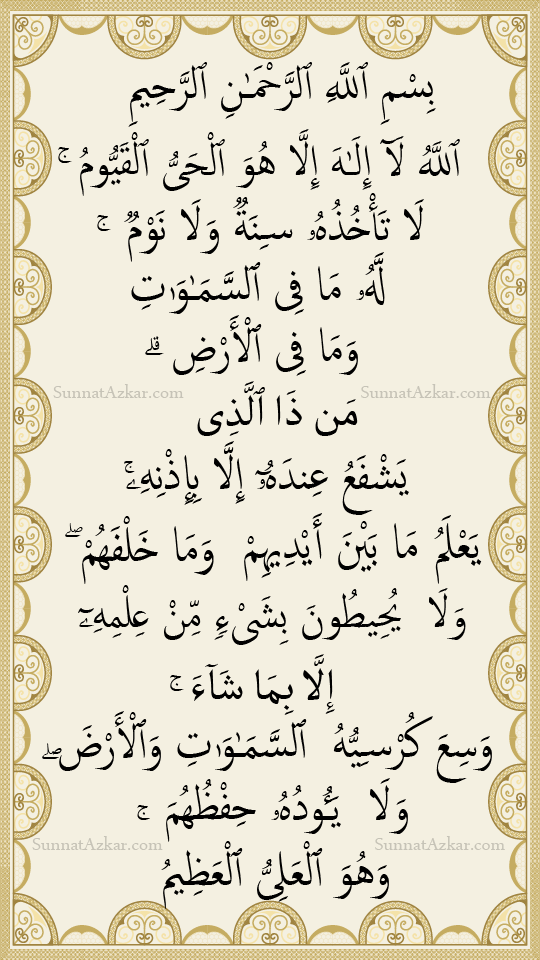
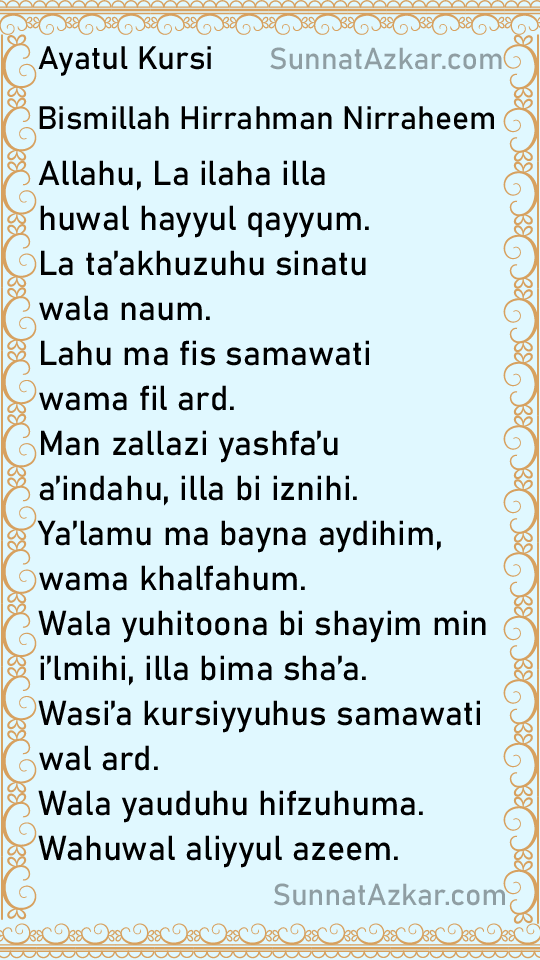
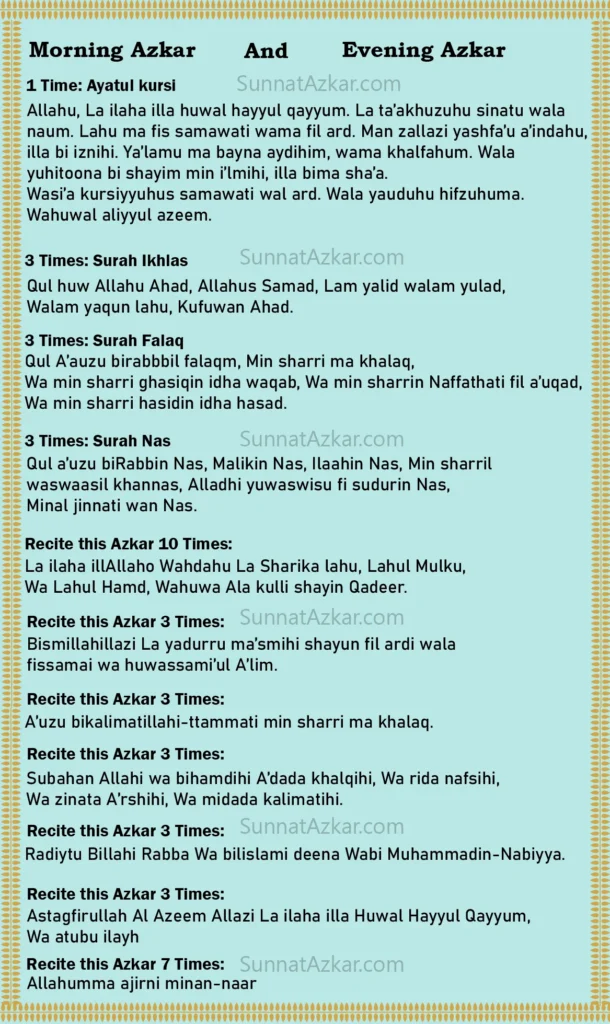
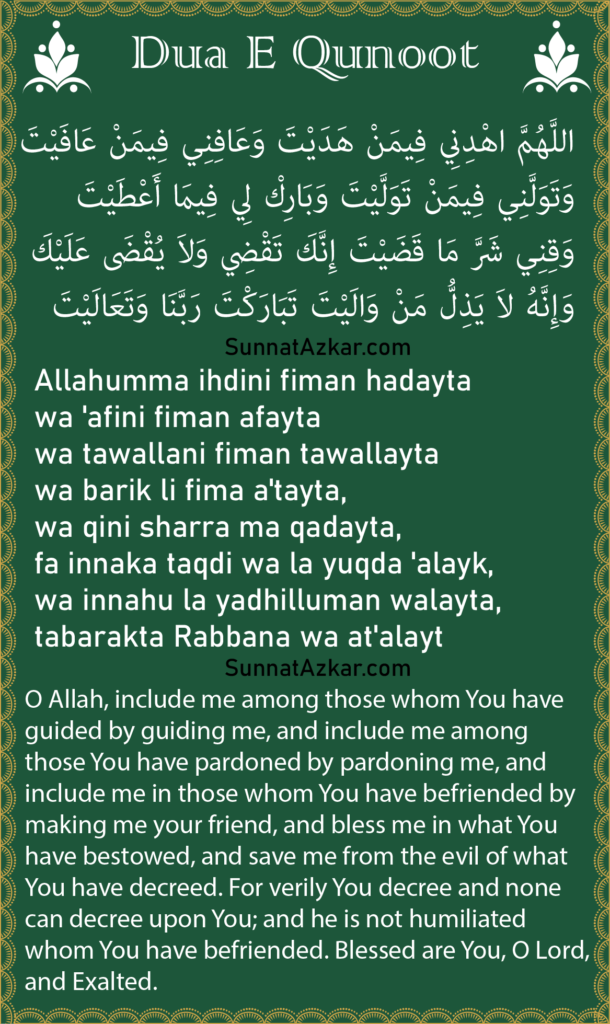




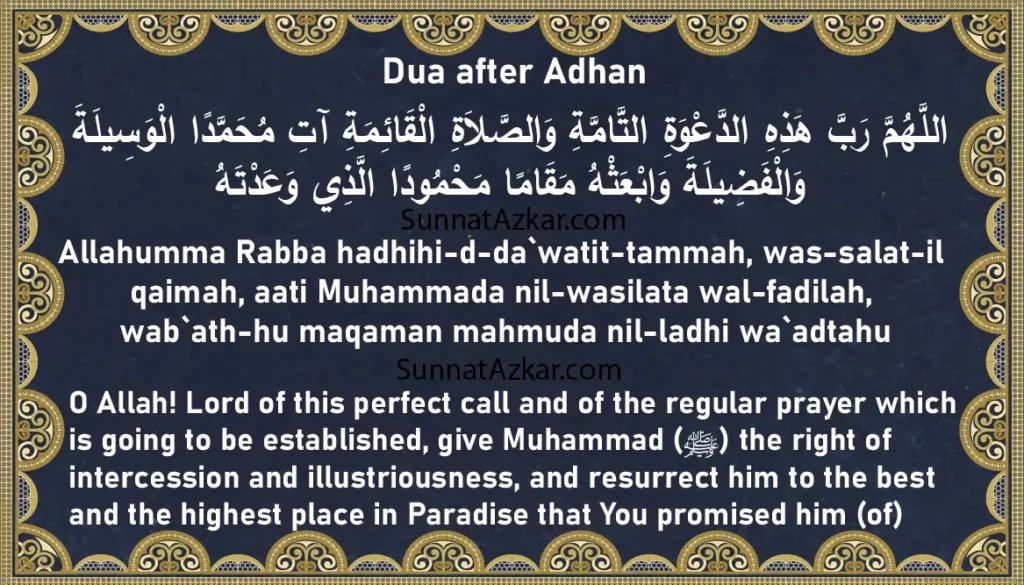



Pingback: 4 Qul in Hindi - SunnatAzkar